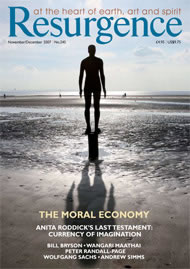THIS BOOK OPENS with the parable of Easter Island. It is the tale of a society with limited resources to supply all of its demands and of a population that ultimately had no practical means of escape when times became hard. It is the story of a people who, as a result of environmental conditions allowing only certain crops to be grown, were left with a great deal of leisure time, leading to the development of one of the most complex of Polynesian societies. This society took its most visible form in the construction of massive stone heads. The erection of these sculptures, combined with other more mundane reasons such as clearance for agriculture and building materials, led to large-scale deforestation. On an island one could circumnavigate in a day it seems in retrospect that it should have been easy to link the destruction of the forest with the inhabitants’ survival. But this was not the case. By 1600, approximately 1,000 years after the island was first settled, the damage was irreversible. Total deforestation caused massive environmental degradation, leading ultimately to the downfall of that society, which must have seen that it had limited resources, and must have realised that it had no means of escape, yet continued to use up what was available – to the point of collapse. It all feels worrying familiar.
In this reissued and substantially rewritten book, the reader is treated to a panoramic view of the history of humanity’s interaction with the environment. Along the way, Clive Ponting signposts major social, political, economic and environmental shifts in our history, demonstrating how they have laid the foundation for our current problems. The “First Great Transition” in human living patterns towards agriculture was, Ponting says, “the foundation for all later social and political change”. This opening of “the way to seeing land, resources and food as ‘property’” marked humanity’s shift from hunting and gathering to a sedentary way of life. Ponting also introduces another key theme here: inequality. For the first time there was a surplus of food, and so some members of the human community were not directly involved in providing for themselves; this enabled the development of hierarchy. Ponting asks exactly why this transition occurred; in addition to producing the conditions for inequality, agriculture meant more work, often for a worse diet. He concludes that it was a very gradual shift that once made was impossible to reverse, and that became a political and economic necessity.
With the advent of agriculture we enter humanity’s “Long Struggle”, a period dominated by famine and disease. Examining the roots of economic globalisation, Ponting describes how the ability of certain nations to control an increasing share of the world’s resources, spurred on by economic and political pressures, has resulted in the end of the Long Struggle – but, sadly, only for a privileged few. Bringing us right up to date, Ponting explains how the advent of modern agriculture and massive energy use has only resulted in a change in the scale of the problem. Although more are fed and live a life of comfort than ever before, this is only achieved on a highly unequal basis.
The final third of the book documents these last 200 years of human history. Ponting’s “Second Great Transition” concerns our shift to the modern industrial world built on massive use of fossil fuels, the rise of the city, free-market economics and increasing levels of pollution. The most important consequence of this is the “threat to global systems”, Ponting’s phrase to describe the biggest crisis facing us now: global warming. His stark warning is that the breakdown of our civilisation is entirely possible. Historical collapses of large-scale complex societies came about as the agricultural base could not support the superstructure built on it. Increasing temperatures will put even greater stress on an already overstretched agricultural system.
A comprehensive account of humanity’s devastating effect on the environment, this book also catalogues the economic and political underpinnings of this destruction. It is shot through with the urgency of our need to reject anthropocentric ideas of progress. Ponting quotes Chief Seattle of the Squamish tribe, who is said to have written to the President of the United States in 1854 to protest the treatment of Native Americans by white settlers: “Man does not weave the web of life; he is merely a strand in it. Whatever he does to the web, he does to himself.” They didn’t listen then; will we listen now?






